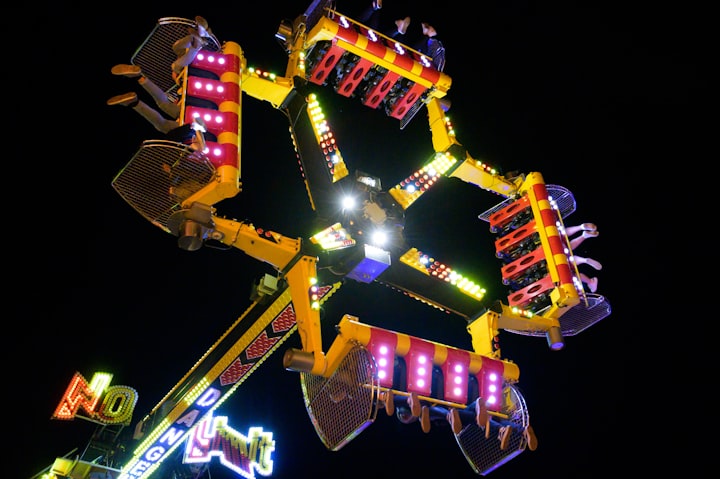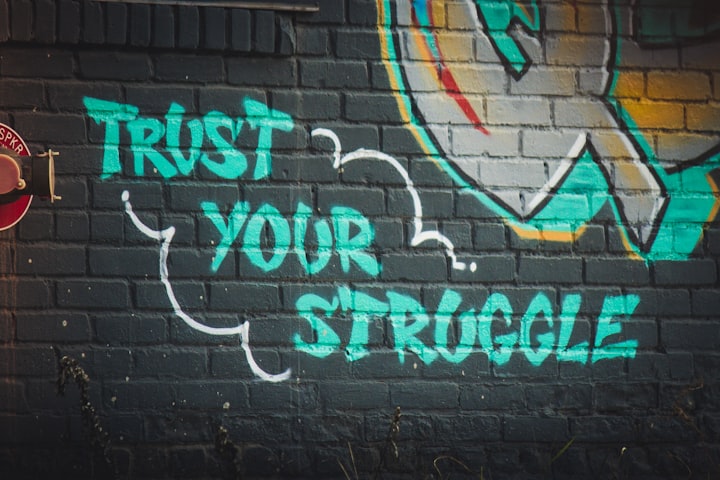Racism at Sixteen
My grapplings with White Privilege, and everything that comes with it.

When I was seventeen, I got a job as a lifeguard on route ten, at an indoor amusement park and outdoor waterpark. It was beautiful, all brand new, and it was way larger of an operation then I had ever been apart of with at least a hundred workers on just the outdoor area. It’s important to say that it was on route ten, because route ten is the only place in our town where the bus comes. It’s a major highway, with places like AMC, Chilies, and many others, and people from poor neighborhoods and cities take this bus, and many of them work at places one can walk too, on route ten.
It’s important to note, that this was one of my first real experiences being in a group of people where I, a white woman, was the minority. And I’m just going to be candid here, because this adds to the whole truth of the situation, it was scary. Not because they were black and I wasn’t but because it was a different culture. One would never know that by the guy slapping wrist bands on, or the Spanish people making the pizza in the back by hand, but as a life guard, or worked there every day, I saw the real them, and the real truth, if you will. And then it wasn’t scary. They were me, and I was them, and I loved them.
I had this beautiful black manager, a woman. She was stunning, and she towered over me- probably close to six feet tall. She used to come up to me and wrap her arm around me and say, “Your my girl! How you doing?” When other workers came by, she would say this is my girl Kaleigh! Do you know her? It was fun. She welcomed me. At sixteen or seventeen, I needed that, desperately.
When I would go outside with the other workers, they would joke about me getting sunburned, and my resident nickname was “snowflake.” And It was funny. I laughed with them at it. We put on sunscreen together, in the same tent, we ate together, the same food. We rescued together, we complained together, and worked together.
But at the same time, I remember at that same job, when I invited one of my friends, a black man, over to be a part of my Christmas traditions, he asked me, “Your parents know I’m black right?”
The second that question was asked, we were out of our world where we were equal, and the jokes were funny. We were back where because I’m white, I was over him. Not emotionally, or physically, but in society, which is much much harder to change. My parents were shocked he had to ask that, they were shocked when he went out to the store and bought nice clothes and took the tags off in our car so we wouldn’t notice. He wanted to be anything but black and from a neighborhood where the only way to get around was to take that bus to route ten.
I’m not sixteen now, I’m twenty-two, and I’ve been to college, and I’ve learned a lot. I’ve learned about race, about housing, and systemic racism. I won’t lie, it’s scary. Not because I don’t benefit, but because they teach us this, they don’t say how to fix it. I remember learning about the racism is the housing market, and feeling like it was some crazy conspiracy theory- except not, and I couldn’t fix it, not then, not now.
I can argue to hell and back, with my family at thanksgiving, about how Newark school systems need astronomically more funding because kids in those areas need more care because their parents are significantly lower income, and honestly, lower in all the wrong thing things. Lower in education, lower in jobs, lower in food security, health care, and so many others. If you don’t believe me, you can look it up, any school district is required to make their demographics public. How many kids, what races, how many are on free or reduced lunches, the list goes on. But no matter how much I know this, and argue for it, it doesn’t fix it. It doesn’t. I desperately wish it did.
I wish it so badly that when I got home from a mission’s trip to the south side of Chicago, I made up my mind. I was not going to be a teacher in a white suburban neighborhood. I would come back to the kids that desperately needed more people to look at them, and see the need, and attempt to fill it. Not because I’m white, but because I have hope. I have hope that anyone given the right support, and even many who are not, can rise above. The statistics on how many black people to white people who become teachers are astronomically disproportionate. But I have hope, that some day a kid I teach will look at me like I looked at that manager, and get the confidence they need to go to college, and fight, fight for their future. Which every kid, every single damn one deserves.
I can’t change systemic racism. I can’t change that outside of my tiny bubble, people face police brutality, and just the complete wrongness of this world. But what I can do, is make every space that I’m in, not be like that. I can hope that people look at the space I’ve created and take that outwards. I can’t change the laws, but I can choose to show love, and not fear. I can choose to say to everyone, “Your life matters, your culture matters, and most of all, your future matters.”
We choose the culture we perpetuate, and from that laws and everything else comes. I’m choosing to perpetuate life, and love, and raising up of people, instead of the tearing them down. What will you perpetuate?





Comments
There are no comments for this story
Be the first to respond and start the conversation.